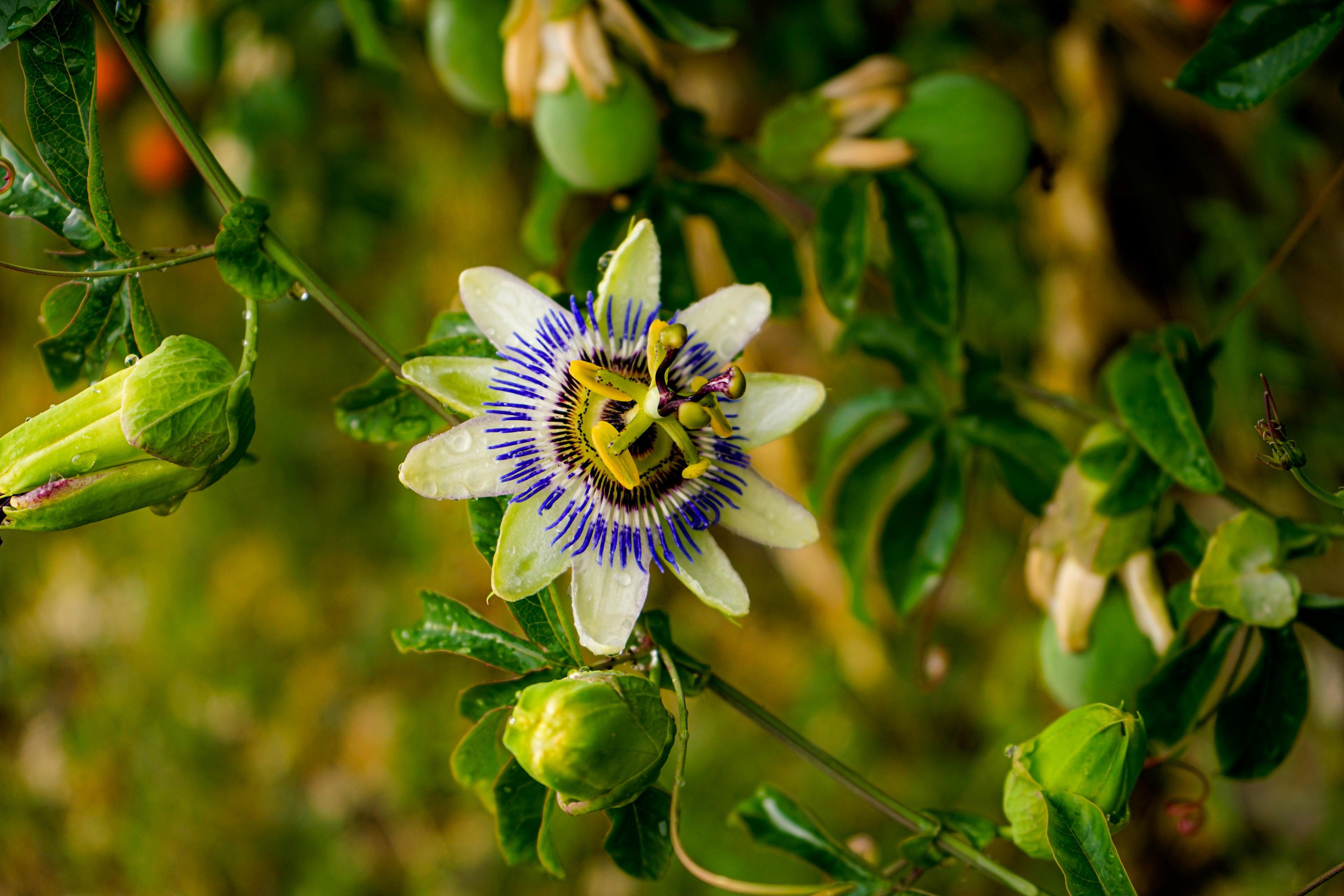Nervines are some of the most essential herbs for overall well-being, and they can benefit almost everyone at some point or another.
At their core, nervines are herbs that support and influence the nervous system—but to say that is a bit too simplistic. Each nervine herb uniquely interacts with the nervous system, offering distinct benefits depending on the herb and the situation.
But what exactly is the “nervous system”? The nervous system is the body’s communication network, coordinating all bodily functions. It includes the brain, spinal cord, and nerves throughout the body and can be divided into two main branches: the central nervous system (CNS) and the peripheral nervous system (PNS).
The CNS comprises the brain and spinal cord, the primary control centers for all bodily activities. Conversely, the PNS includes the vast network of nerves that extend from the spinal cord and spread throughout the body. The PNS is divided into two essential systems: the somatic nervous system, which controls voluntary movements like walking and talking, and the autonomic nervous system, which manages involuntary functions such as breathing, digestion, and heart rate.
The nervous system plays a crucial role in nearly every aspect of our body’s function, making nervine herbs incredibly versatile in their potential benefits. Nervines can support everything from relieving nerve damage and muscle tension to helping with anxiety, digestion, and heart rate regulation. Though nervine herbs share a common goal of supporting the nervous system, we can better understand how each one works and how to choose the right one for our needs by categorizing them into four main groups.
The Different Types of Nervines:
1. Nervine Tonics/Trophorestoratives
Nervine tonics, also known as nervine trophorestoratives, help tone and strengthen the nervous system over time. They can be used long-term to restore balance and vitality to the nervous system, returning it to homeostasis. Nervine tonics are particularly helpful for those who have been dealing with long-term stress, which often leads to burnout symptoms from pushing themselves too hard for too long.
Chronic stress can leave the nervous system feeling frazzled, overactive, and out of balance. While this state doesn’t always lead directly to adrenal fatigue, it strains the adrenals, especially when the body is constantly in a heightened state of stress. This type of stress often precedes actual adrenal fatigue, a term that’s gained much popularity in the holistic health space, but regardless, it’s still taxing on the body.
Milky oats (my favorite), skullcap, and St. John’s Wort are herbs in this category. They work best when used fresh and long-term to rebuild and strengthen the nervous system.
2. Nervine Relaxants/Sedatives
Nervine relaxants are the most familiar category of nervines, and they include herbs like chamomile, lavender, lemon balm, linden, and passionflower, among others. These are what I like to call situational nervines or everyday nervines—herbs that help us cope with the anxieties and stresses of daily life. Whether dealing with rush hour traffic, stage fright, or general nervousness, these herbs help calm the nervous system without making you overly sedated.
Nervine relaxants don’t make you sleepy so they can be taken throughout the day. They’re fast-acting and work well for short-term relief, but they can also be helpful long-term, especially for those with general anxiety disorder or persistent low-grade stress.
3. Nervine Hypnotics
When you think of herbs that help with sleep or muscle tension, you likely think of nervine hypnotics. These include well-known herbs like kava, Jamaican dogwood, hops, valerian, and wild lettuce. These herbs relax the mind and soothe the body, easing muscle tension and restless legs and promoting a restful night’s sleep.
Many of these herbs have additional analgesic (pain-relieving) and antispasmodic properties, which can be particularly helpful when pain is preventing sleep—think tension headaches or sore muscles. They are typically used short-term for immediate relief and are generally fast-acting.
4. Nervine Stimulants
Nervine stimulants are a unique category that I don’t recommend very often. These herbs stimulate the nervous system, boosting energy or mental alertness. Common examples include coffee, cola, and rhodiola.
While they might have their place in certain situations, nervine stimulants can be pretty energizing and are generally not ideal for those already dealing with stress or anxiety. The growing hype around Rhodiola can be misleading—warming, drying, and stimulating actions aren’t for everyone, especially for people who tend to feel overstimulated or anxious.
So, while nervine stimulants can help boost energy or focus when needed, they should be used sparingly, as their effects can be overstimulating for some.
What Pairs Well With Nervines?
While nervines can be effective independently, I often combine them with three key categories of herbs to enhance their effects.
1. Adaptogens
Adaptogens and nervines, especially nervine tonics, have long-term restorative effects on the body. Like nervine tonics, adaptogens are beneficial for those dealing with long-term stress and are not a quick energy boost, despite what many products on the market might suggest. They work gradually to help the body adapt to stress, providing resilience over time.
My favorite adaptogens to pair with nervines include Reishi, holy basil, ashwagandha, and Schisandra. These herbs share nervine qualities, supporting the nervous system while helping the body manage stress. However, some adaptogens can be more stimulating, so it’s essential to choose the right ones based on your needs.
2. Nootropics
Nootropic herbs—like rosemary, gotu kola, and lion’s mane—are another great pairing with nerves, especially when dealing with depression or nerve pain. These herbs can improve cognitive function and peripheral circulation. Nootropics support mental clarity and focus, enhancing the overall action of nerves when seeking relaxation and mental clarity.
3. Synergists
Synergists are herbs that enhance the action of other herbs, making them stronger and more effective when combined. These herbs are often used in formulations to bring harmony to the blend. Two classic examples of synergists are licorice root and rosemary, both of which can complement nervines, improving their overall potency and absorption.
Conclusion
In conclusion, nerves are essential in our busy, often stressful world. When selecting the right nerve for you, it’s necessary to narrow it down by category and then explore the specific virtues of each herb. Dig into material medicas and herb books, and find the best fit for your needs. Check out our shop if you need anything.
Suppose you’re looking for a ready-made nervine for your shop. We offer tinctures for stress and sleep with many of these herbs and tea blends, like our Peace & Calm, for a relaxing, warming beverage!













Leave a comment